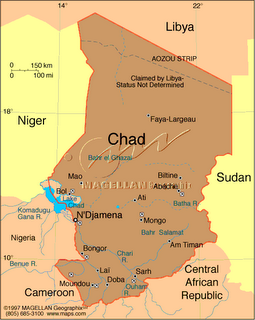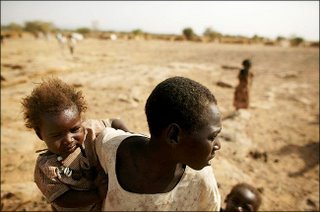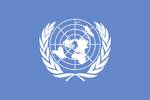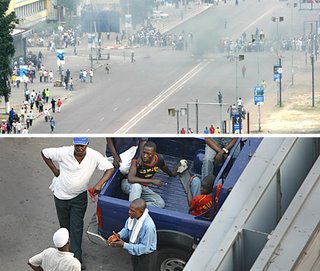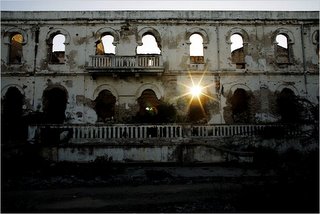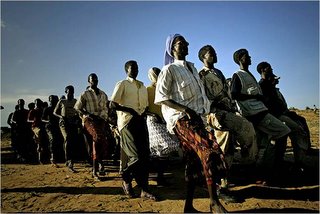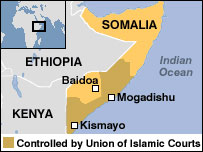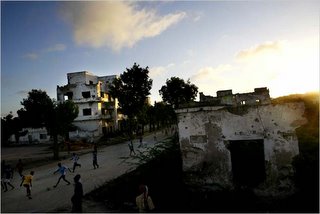
I've been meaning to post this for a while; it was delivered in late September in New York. It's the usual optimism about the state of the world one expects from those in high public office, none of whom seem to want to admit that the planet is going up in a pyromaniac flame-throwing frenzy. That said, I admire the man and his cause. His remarks about terrorism are interesting, and it is refreshing to be reminded that the UN is not the pious adherent of the pro-globalization orthodoxy so common on these shores. More cash for the rich does not float all boats. Here's the speech in full:
Madam President, Excellencies, Ladies and Gentlemen,
When I first spoke to you from this podium, in 1997, it seemed to me that humanity faced three great challenges. One was to ensure that globalization would benefit the human race as a whole, not only its more fortunate members. Another was to heal the disorder of the post-cold-war world, replacing it with a genuinely new world order of peace and freedom, as envisaged in our Charter. And the third was to protect the rights and dignity of individuals, particularly women, which were so widely trampled underfoot.
As the second African to serve as Secretary-General, I felt that all three of these challenges-- the security challenge; the development challenge; the challenge of human rights and the rule of law -- concerned me directly.
Africa was in great danger of being excluded from the benefits of globalization -- indeed, of being left to rot on the margins of the world economy. Africa was also the scene of some of the most protracted and brutal conflicts.
And many of Africa's people felt they were unjustly condemned to be exploited and oppressed, generation after generation, since colonial rule had been replaced by an inequitable economic order on the global level, and sometimes by corrupt rulers and warlords at the local level. In the decade since then, many people have been struggling to confront these three global challenges.
Much has been achieved, but events have also presented us with new challenges -- or rather, have given the old ones new form, or a sharper bite.
In the economic arena, both globalization and growth have continued apace. Some developing countries, notably in Asia, have played a major role in this growth. Many millions of their people have thereby been released from the prison of perpetual poverty. Meanwhile, at the level of development policy, the debate has advanced, moving from rival models to agreed targets. And the world has now recognized HIV/AIDS as a major challenge to development, and begun to confront it. I am proud of the role the United Nations has played in this.
Development, and the Millennium Development Goals, now take pride of place in all our work. But let's not delude ourselves. The Asian miracle is yet to be replicated in other parts of the world. And even within the most dynamic Asian countries, its benefits are far from equally shared. By the same token, the Millennium Goals are unlikely to be achieved everywhere by 2015.
True, in many developing countries there is now a much better understanding of what good governance is, and why it's important. But many still fall short of it in practice. True, there is progress on debt relief, as well as encouraging promises on aid and investment. But the 'global partnership for development' is still more phrase than fact -- especially in the all-important area of trade. My friends, globalization is not a tide that lifts all boats. Even among those who the statistics tell us are benefiting, many are deeply insecure, and strongly resent the apparent complacency of those more fortunate than themselves. So globalization, which in theory brings us all closer together, in practice risks driving us further apart. Are we any more secure against the second challenge -- the ravages of war?
Again, some statistics would tell us so. There are fewer inter-state conflicts than there used to be; and many civil wars have ended. Here too, I am proud of the United Nations' role in this. And I am proud of what my fellow Africans have achieved in ending many of the conflicts that disfigured our continent. But here too, we should be under no illusion.
In far too many parts of the world -- especially the developing world -- people are still exposed to brutal conflicts, fought with small but deadly weapons. And people in all parts of the world are threatened -- though some are more aware of it than others -- by the spread of weapons of mass destruction. It is shameful that last year's Summit Outcome does not contain even one word about non-proliferation and disarmament, basically because states could not agree which of the two should be given priority. It is high time to end this dispute, and tackle both tasks with the urgency they demand. Moreover, just as some who benefit from globalization may feel threatened by it, so, many who are statistically safer from conflict do not feel safe.
For that, we have terrorism to thank. It kills and maims relatively few people, compared to other forms of violence and conflict. But it spreads fear and insecurity. And that in turn drives people to huddle together with those who share their beliefs or their way of life, while shunning those who appear 'alien'.
Thus, at the very time when international migration has brought millions of people of different creed or culture to live as fellow-citizens, the misconceptions and stereotypes underlying the idea of a 'clash of civilizations' have come to be more and more widely shared; and insensitivity towards other people's beliefs or sacred symbols -- intentional or otherwise -- is seized upon by those who seem eager to foment a new war of religion, this time on a global scale. Moreover, this climate of fear and suspicion is constantly refuelled by the violence in the Middle East.
We might like to think of the Arab-Israeli conflict as just one regional conflict amongst many. But it is not. No other conflict carries such a powerful symbolic and emotional charge among people far removed from the battlefield. As long as the Palestinians live under occupation, exposed to daily frustration and humiliation; and as long as Israelis are blown up in buses and in dance-halls: so long will passions everywhere be inflamed.
On one side, supporters of Israel feel that it is harshly judged, by standards that are not applied to its enemies -- and too often this is true, particularly in some UN bodies.
On the other side, people are outraged by the disproportionate use of force against the Palestinians, and by Israel's continued occupation and confiscation of Arab land. As long as the Security Council is unable to end this conflict, and the now nearly 40-year-old occupation, by bringing both sides to accept and implement its resolutions, so long will respect for the United Nations continue to decline.
So long, too, will our impartiality be questioned. So long will our best efforts to resolve other conflicts be resisted, including those in Iraq and Afghanistan, whose peoples need our help just as badly, and are entitled to it. And so long will our devoted and courageous staff, instead of being protected by the blue flag, find themselves exposed to rage and violence, provoked by policies they neither control nor support.
But what about the third great challenge facing humanity: the challenge of the rule of law, and our rights and dignity as human beings? Here, too, there has been significant progress. More rights have been enshrined in international treaties -- and this Assembly is now about to codify the rights of a group who particularly need it: people who suffer from handicaps and disabilities. More governments today are elected by, and are accountable to, those whom they govern.
Humanity has actually brought to justice some of those who committed the most heinous crimes against it. And this Assembly, meeting last year at the highest level, has solemnly proclaimed the responsibility -- of each individual State in the first instance, but ultimately of the whole international community, acting through the United Nations to protect populations from genocide, war crimes, ethnic cleansing and crimes against humanity. And yet.
And yet. Every day, reports reach us of new laws broken; of new bestial crimes to which individuals and minority groups are subjected. Even the necessary and legitimate struggle around the world against terrorism is used as a pretext to abridge or abrogate fundamental human rights, thereby ceding moral ground to the terrorists and helping them find new recruits. Sadly, once again the biggest challenge comes from Africa --from Darfur, where the continued spectacle of men, women and children driven from their homes by murder, rape and the burning of their villages makes a mockery of our claim, as an international community, to shield people from the worst abuses. In short, Madam President, the events of the last ten years have not resolved, but sharpened, the three great challenges I spoke of an unjust world economy, world disorder, and widespread contempt for human rights and the rule of law. As a result, we face a world whose divisions threaten the very notion of an international community, upon which this institution stands.
And this is happening at the very time when, more than ever before, human beings throughout the world form a single society. So many of the challenges we face are global. They demand a global response, in which all peoples must play their part.
I deliberately say 'all peoples', echoing the preamble of our Charter, and not 'all states'. It was clear to me ten years ago, and is even clearer now, that international relations are not a matter of States alone. They are relations between peoples, in which so-called 'non-state actors' play a vital role, and can make a vital contribution. All must play their part in a true multilateral world order, with a renewed, dynamic United Nations at its centre. Yes, I remain convinced that the only answer to this divided world must be a truly United Nations. Climate change, HIV/AIDS, fair trade, migration, human rights -- all these issues, and many more, bring us back to that point.
Addressing each is indispensable for each of us in our village, in our neighbourhood, and in our country. Yet each has acquired a global dimension that can only be reached by global action, agreed and coordinated through this most universal of institutions. What matters is that the strong, as well as the weak, agree to be bound by the same rules, to treat each other with the same respect. What matters is that all peoples accept the need to listen; to compromise; to take each other's views into account. What matters is that they come together, not at cross purposes but with a common purpose: a common purpose - to shape their common destiny. And that can only happen if peoples are bound together by something more than just a global market, or even a set of global rules.
Each of us must share the pain of all who suffer, and the joy of all who hope, wherever in the world they may live. Each of us must earn the trust of his fellow men and women, no matter what their race, colour or creed, and learn to trust them in turn. That is what the founders of this Organization believed in. It is what I believe in. It is what the vast majority of people in this world want to believe in. And that is what has spurred the reforms and new ideas of the United Nations over the last frenetic decade.
From peacekeeping to peacebuilding, from human rights to development and humanitarian relief, I have been lucky enough to preside over the Secretariat -- and its wonderful, devoted staff at a time when your ambitions for the Organization have sometimes seemed limitless -- although your pocket books less so. These last few weeks, especially, as I travelled through the Middle East, I saw again the legitimacy and the reach of the United Nations. Its indispensable role in securing the peace in Lebanon has reminded us all how powerful this Organization can be, when everyone wants it to succeed.
Madam President, dear friends: This is the last time I shall have the honour of presenting my annual report to this Assembly. Let me conclude by thanking you all for allowing me to serve as Secretary-General during this remarkable decade. Together we have pushed some big rocks to the top of the mountain, even if others have slipped from our grasp and rolled back. But this mountain with its bracing winds and global views is the best place on earth to be. It's been difficult and challenging, but at times thrillingly rewarding. And while I look forward to resting my shoulder from those stubborn rocks in the next phase of my life, I know I shall miss the mountain. Yes, I shall miss what is, when all is said and done, the world's most exalting job. I yield my place to others with an obstinate feeling, a real obstinate feeling of hope for our common future. Thank you very much.
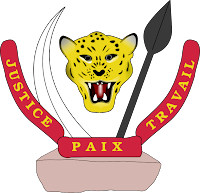
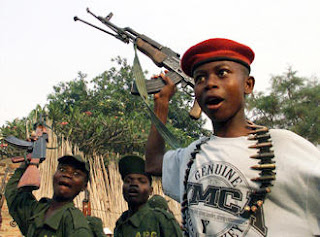


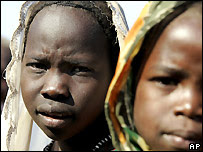






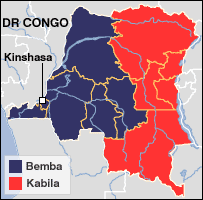

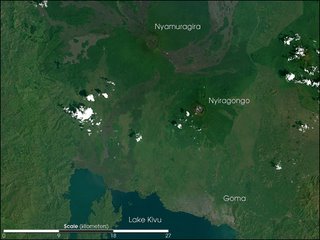
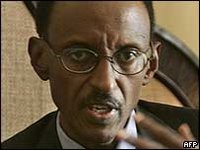


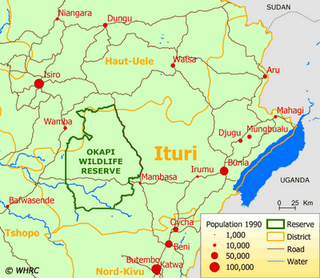
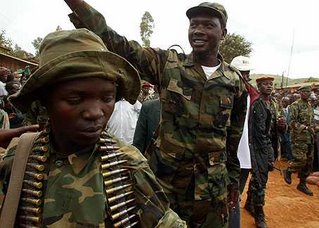

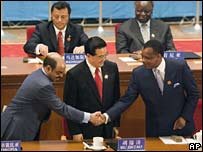



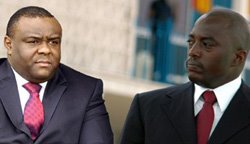



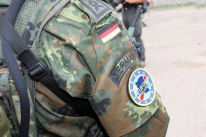
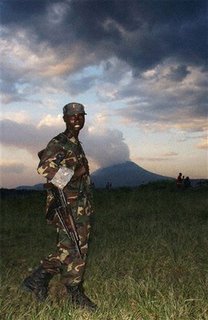

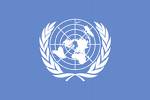
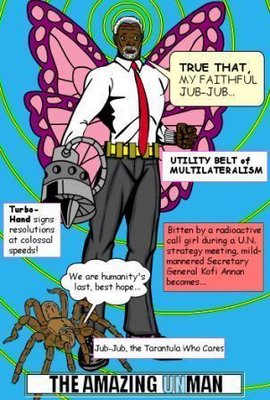

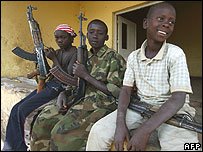 In 2005 and 2006 I've been working in and evaluating several such programs in Burundi and DR Congo. It has been fascinating, but also enormously frustrating. There is always much to criticize in any aid program. Things rarely go as planned and measuring impact in highly insecure and fluid environments is notoriously difficult.
In 2005 and 2006 I've been working in and evaluating several such programs in Burundi and DR Congo. It has been fascinating, but also enormously frustrating. There is always much to criticize in any aid program. Things rarely go as planned and measuring impact in highly insecure and fluid environments is notoriously difficult.

